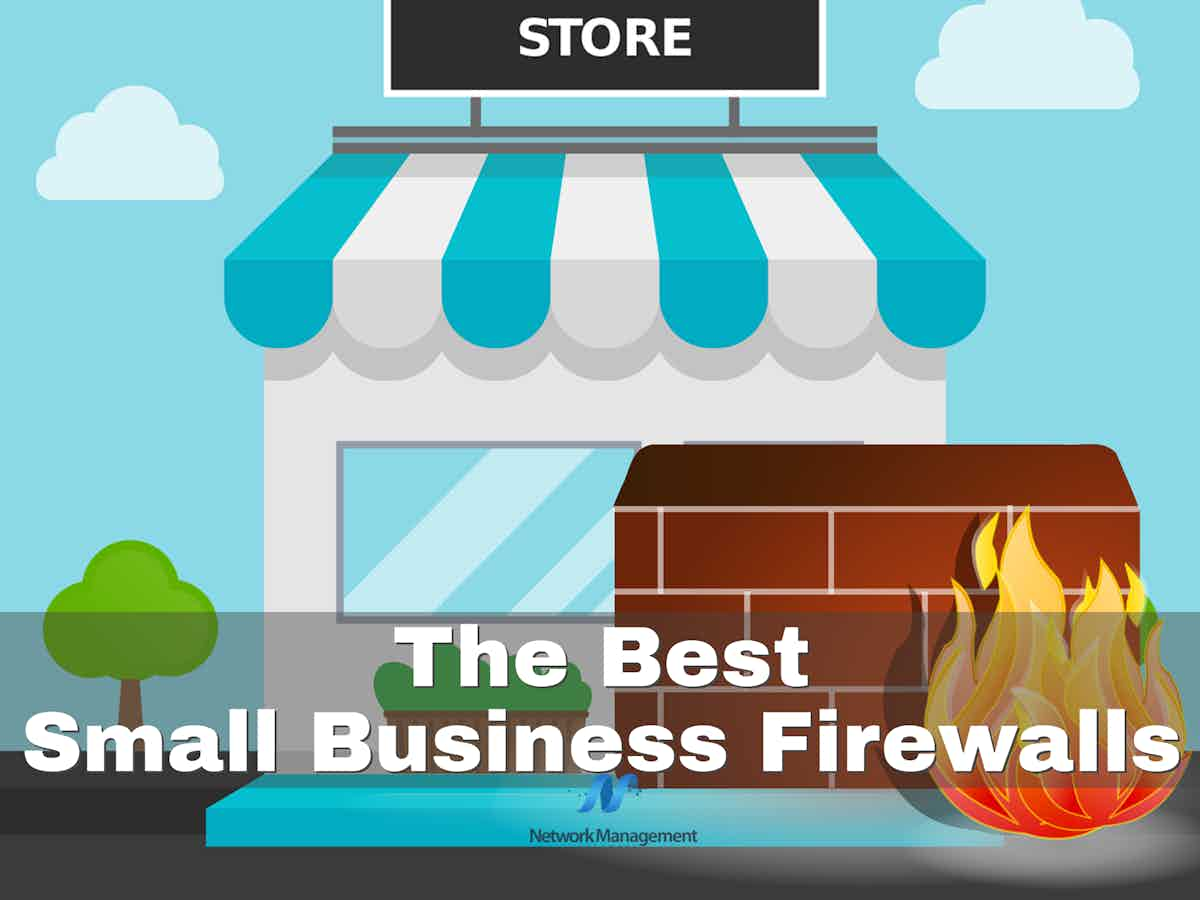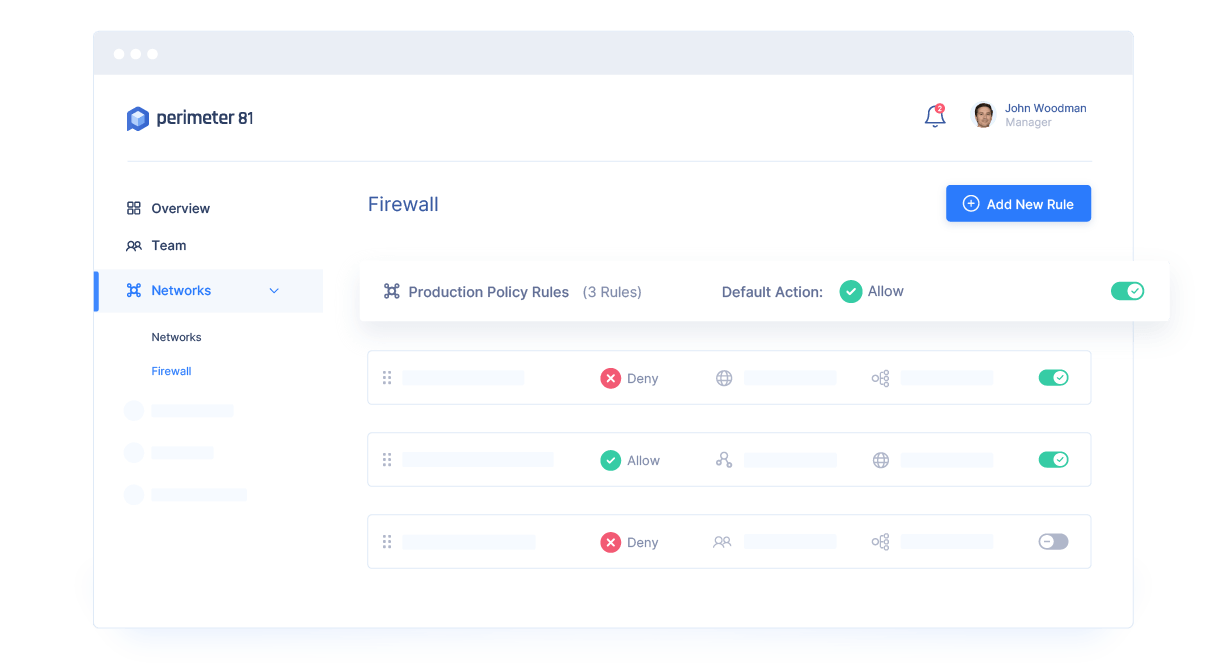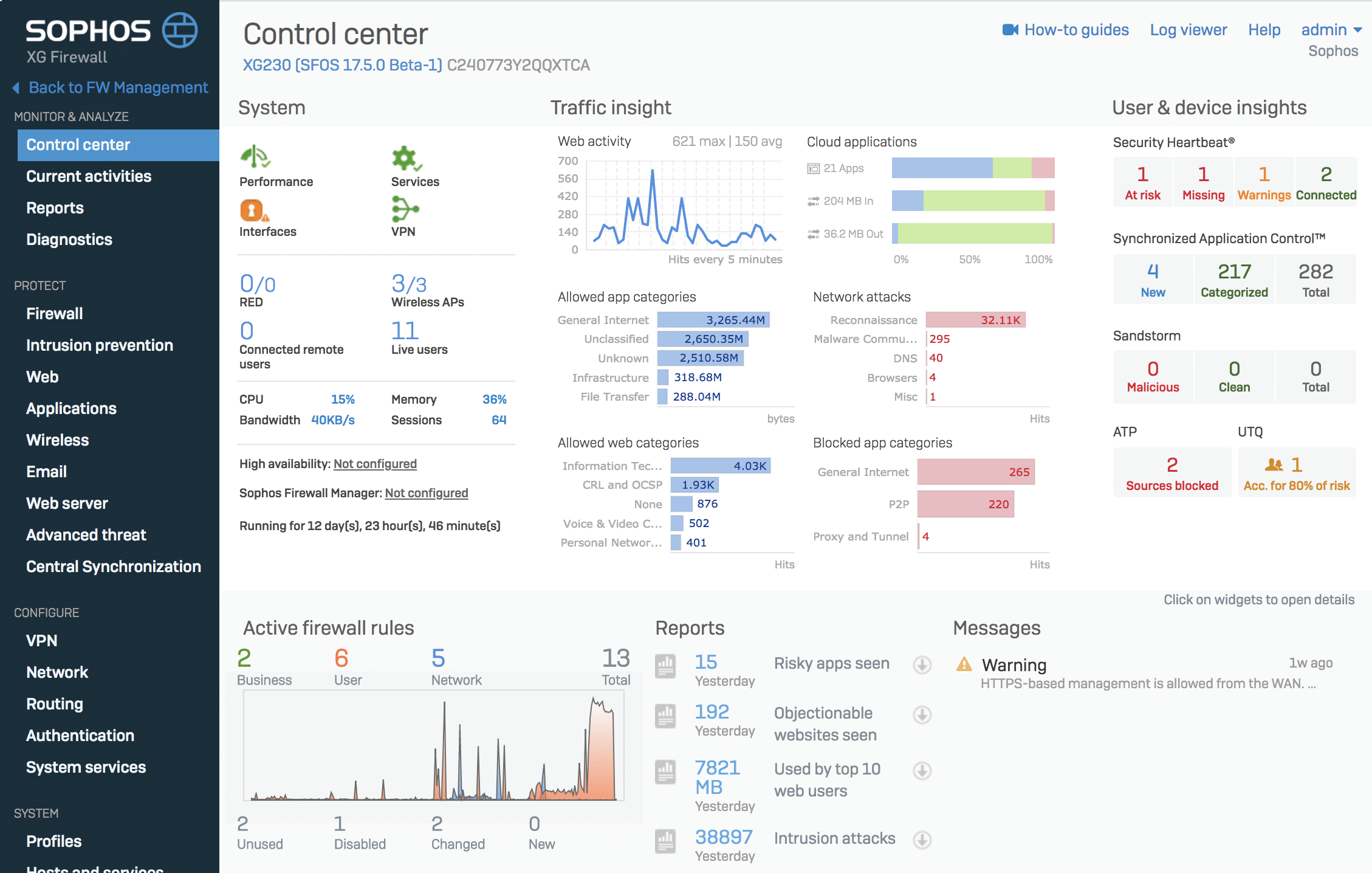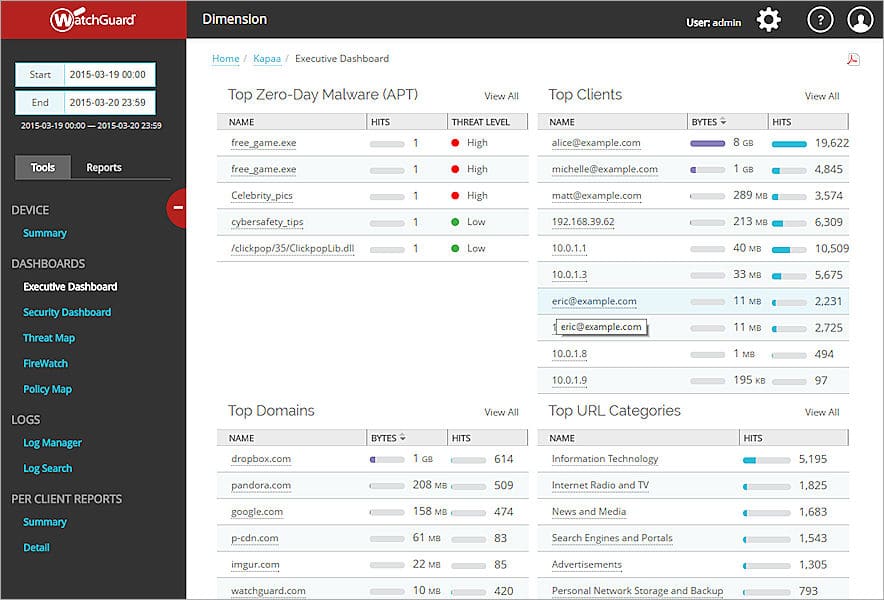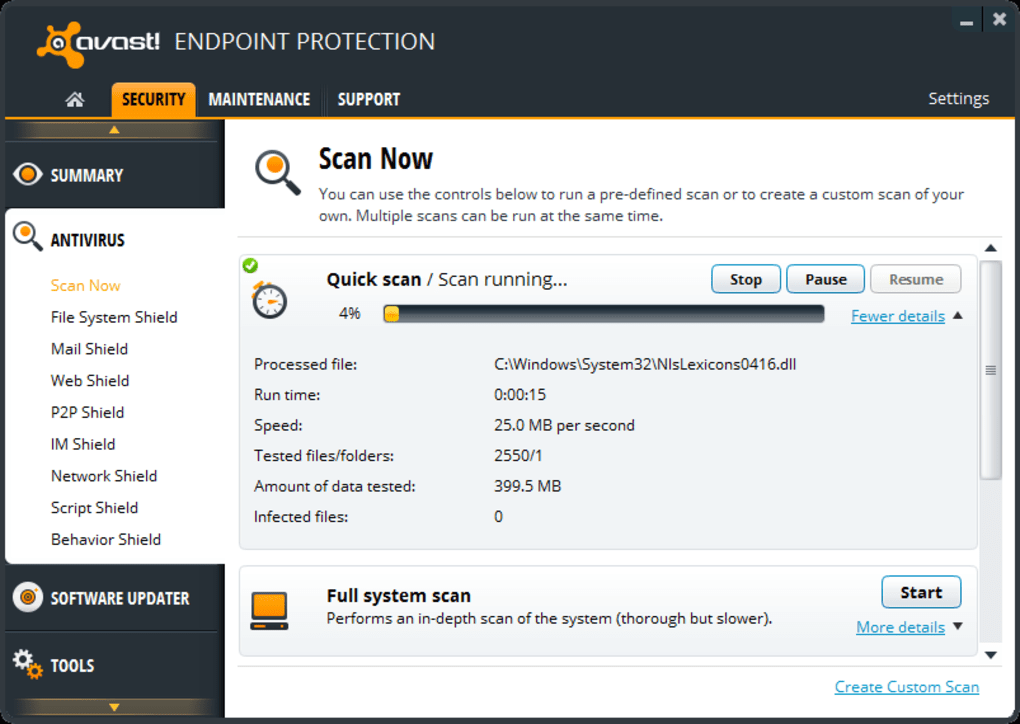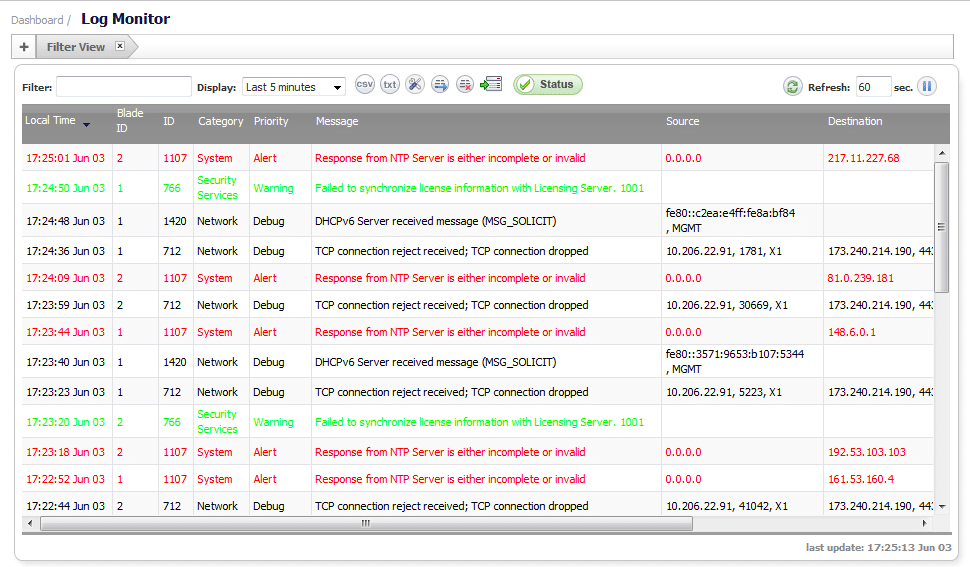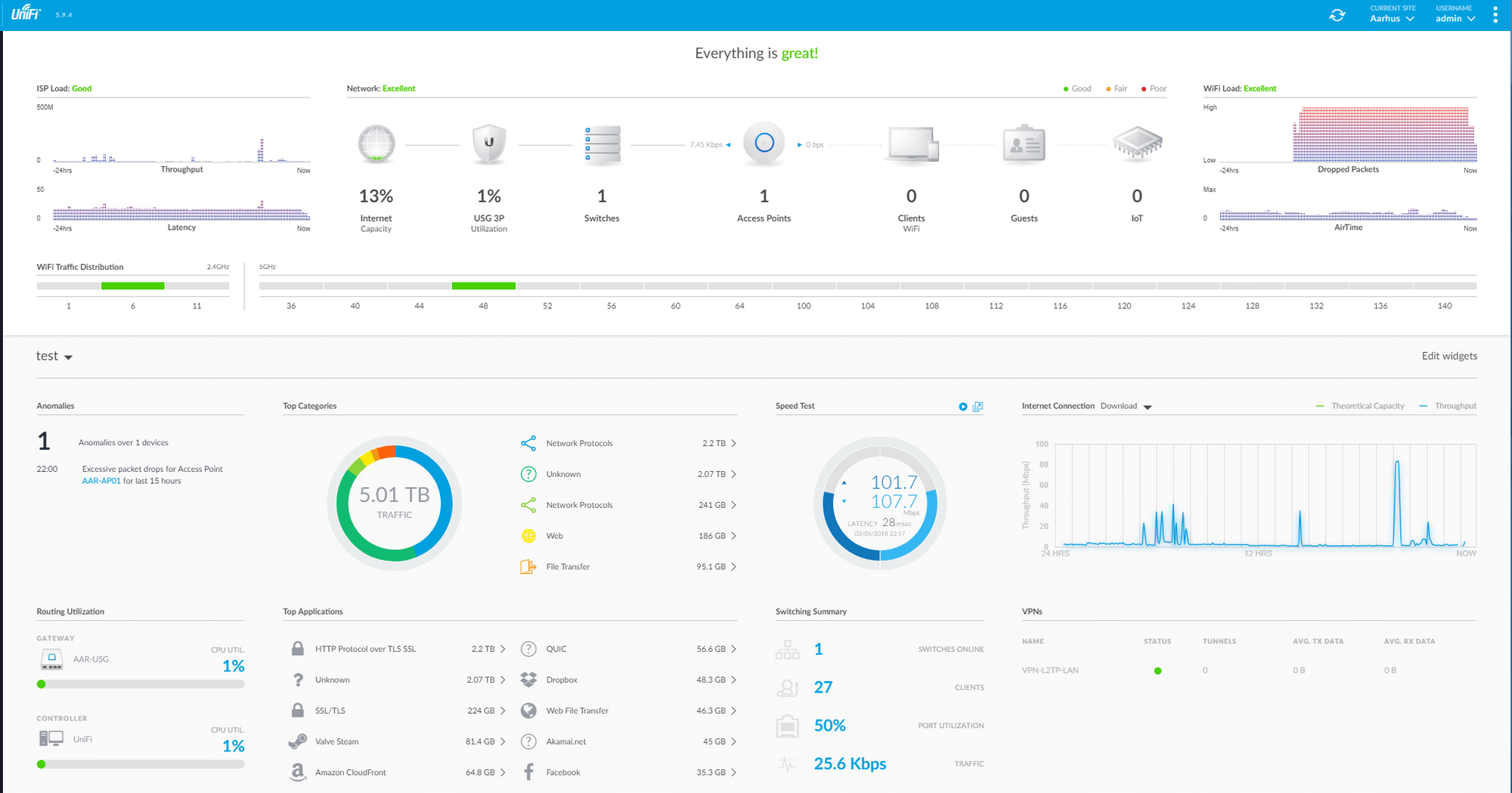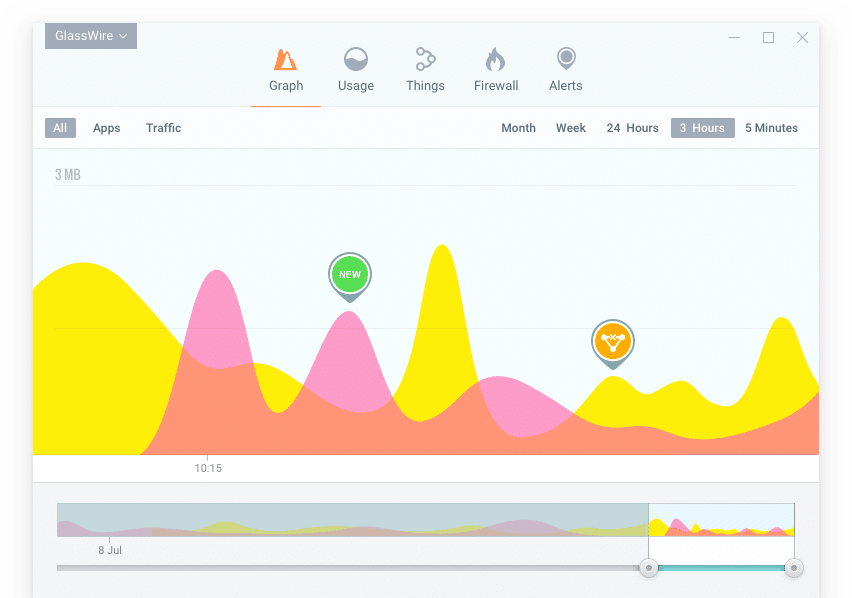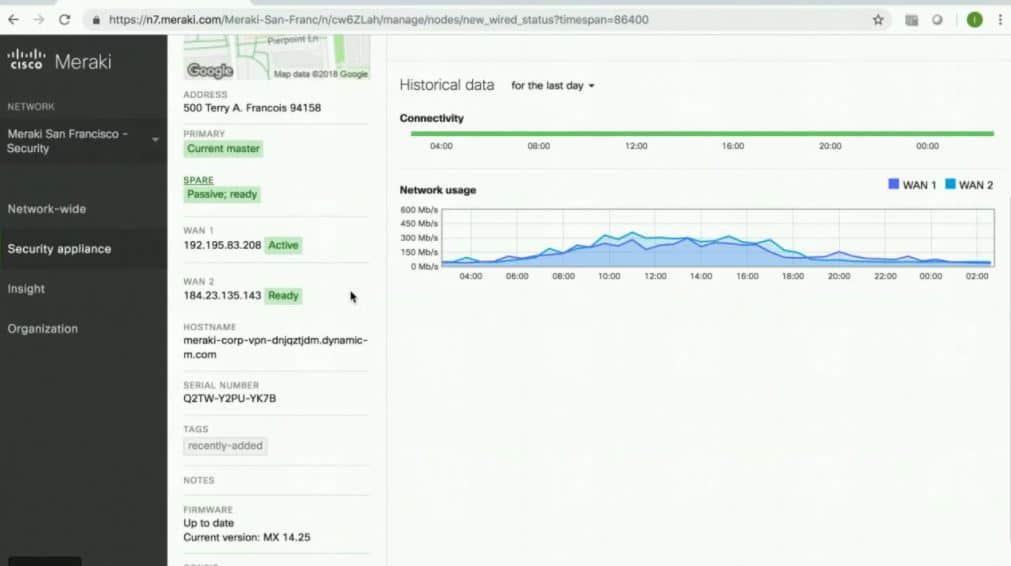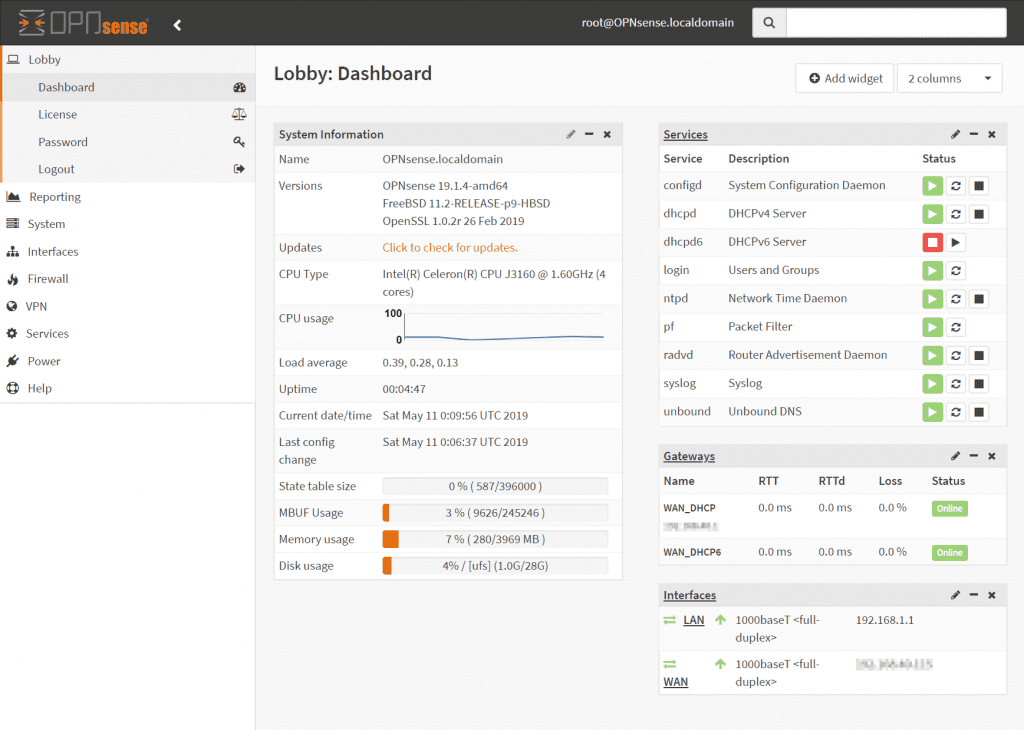In today’s world of hyperconnectivity, there is a growing concern around data security and privacy. With hundreds of security breach incidents reported daily around the world, more small businesses are being targeted by organized cybercrime groups.
In this article, we’ll explore the best small business firewalls to help secure your growing business.
Here is our list of the best small businesses firewalls:
- Check Point’s SASE – EDITOR’S CHOICE Get a cloud-based firewall as part of a package of security tools that enable the protection of hybrid systems and geographically dispersed teams. Access a free demo.
- Sophos Firewall One of the highest-rated options in hardware firewalls is Sophos which promises to offer its users a secure solution to your internet security risks.
- WatchGuard Network Security Focuses a lot on how to simplify the setup and usage of its products and excel at it while ensuring the highest level of security.
- Avast Endpoint Protection Avast has been one of the highly-rated and trusted anti-virus software that has built a strong repute in the past decade and a half. Avast Endpoint Protection is another offering from the same company.
- SonicWall Security solutions for all sorts of customers, may it be for hardware solutions or virtual firewalls maintained by SonicWall remotely. This lends SonicWall a unique position in the firewall marketplace to cater needs of internet users of all genres.
- Ubiquity UniFi Security Gateway The company has a wide range of product offerings that include switches and network access points but a unique product that they offer is their UniFi Security Gateway.
- GlassWire Firewall Another security solution on the market that received the ‘High Performer Award’ from G2. It is an all-around security solution that monitors your online activity and prevents security breaches to bother you.
- Cisco Meraki One of the oldest players in the internet equipment world and is known for its reliable internet hardware solutions.
- Protectli Vault Another firewall equipment manufacturing company that specializes in providing high-security measures on your network.
What is a Firewall?
One of the most commonly-known data security measures, firewalls, have been around for decades and have improved and evolved over the years to cater to modern security requirements. A firewall acts as the foremost defensive measure that individuals and organizations can safeguard their systems. It monitors all traffic to and from devices and remedies any security risks in real-time.
Types of Firewalls
Depending upon the volume and nature of your security needs, there are several different firewalls options that you can opt to protect your devices.
Software Firewalls
Software firewalls, as the name suggests, are computer programs that establish a virtual security check post between your device and the broader internet. All operating systems in the modern world come pre-installed with software firewalls that address the basic defense needs. However, if you are looking for a more secure route, you will find the market practically flooded with SaaS firewall options.
Software firewalls are the perfect option for individuals and small businesses with a few workers who are looking to upgrade their data security. Not only are software firewalls economical, but they are also more agile to manage and easy to configure even with a basic knowledge of using a computer.
Hardware Firewalls
Think of hardware firewalls as the big muscular bodyguards at the entrance of a nightclub in a James-Bond movie. Software firewalls can be very effective in managing data transfer from a few devices but not very effective when there are tens of devices each sharing gigabytes of data every minute. You need to dedicate hardware to monitor connections of such volume.
A hardware firewall is a dedicated device that can be installed at your office and will monitor all information flowing in and out of the connected devices. Not only that, it allows you to establish strict controls over which information can travel in and out of the network and which not. Apart from this, hardware firewalls add a layer of security over the software firewalls and are much tougher to trick into a security breach. Thus, constructing an airtight virtual security parameter around your intranet and all connected devices.
Which one to choose and what to consider?
As with most small businesses, all operations are overlooked by a single person who is responsible for determining the growing needs of their business and taking appropriate decisions to satisfy those needs. Now you, the mastermind of your business, might not have all the information you need to make a well-informed decision about your business, especially if you belong from a relatively non-techy background.
The absolute plethora of options on the market can lead to even experts feeling as if they are at a crossroads. The truth is many firewalls offer similar features but you’ll want to keep an eye out for which platforms best align with your current and future needs.
There are a few key features you should keep in mind while deciding for your business:
- Flexibility Small businesses are not destined to stay small for much longer and we believe neither you do not have plans to keep it small either. It is rather more appropriate to think of them as a growing organization with growing needs as it expands its operations. Thus, your vendors and operations must offer you the flexibility to easily adapt to change without much hassle. A good firewall for a small business ought to be one that can allow expansion for a reasonable limit before it needs to be replaced or overhauled in its entirety.
- Economical If you are growing a business or even any business managing your cash flow is essential. The firewall you choose should correspond with your budget and fulfill your organizational needs while providing the best value for money. It would be preferable if a firewall you choose offers flexible monthly, quarterly and annual licensing with discounts on cumulative payments, so your business can get the best services at the minimum possible costs.
How We Determine The Best Small Business Firewalls
We have compiled a list of well-reputed firewall options readily available for you. While shortlisting our selected choices, we considered the following attributes for each one of them so our readers can confidently choose any of the options that suits best to your needs.
- Market Repute You are about to trust your confidential data with third-party equipment and firmware, it should be well-reputed to own up to its commitment and feel its ethical obligation to keep your data secure. Luckily, some popular names have been in the business for a duration long enough for us to feel confident to recommend them.
- Convenience of Management We would not want you to spend a handsome amount of money on acquiring a hardware firewall and then, spending another ton on hiring a technician to manage that firewall. The firewall solution should be easy to maneuver so you can set up and manage it with the least technical knowledge possible.
- High-grade Security A firewall solution to make it to our list of recommendations should be capable to provide all lacunas in everyday connectivity and provide protection on possible fronts while limiting the costs to a minimum and without being a headache to install and manage.
Our methodology for selecting a small business firewall
We reviewed the small business market for firewalls and analyzed the options based on the following criteria:
- Systems that offer self-installing processes, such as network discovery
- Options to implement microsegmentation and ZTA
- A choice of virtual appliance, network hardware, or cloud firewall
- Protection for links between sites and to remote workers
- Nice to have network performance monitoring as well as security
- A free trial or a demo service so that the package can be assessed without risk
- Value for money from a firewall that offers strong security but is still affordable for small businesses
Using this set of criteria, we looked for firewalls that won’t break the tight budgets of small businesses.
The Best Firewall options for Small Business
Here is our list of options that you can confidently choose from and trust your business’s security to without being worried about any hassles.
1. Check Point’s SASE – GET DEMO
Check Point’s SASE, formerly Perimeter 81, is a cloud platform that enables the implementation of security for systems that are located on multiple sites and also on the cloud. It also enables distributed teams to be protected. A Firewall-as-a-Service (FWaaS) module is included in the higher plans of this system.
Key Features:
- Flexible Virtual Network Solutions: Implement SASE or ZTA
- Cloud Firewall: Uses a dedicated IP address
- Application Protection: Control access to software and services
- Protects all Endpoints: Workstations, servers, IoT, and mobile devices
- Suitable for Hybrid Systems: A gateway for both on-premises and cloud systems
Why do we recommend it?
Check Point’s SASE provides methods to create a virtual network with stretches across the internet between sites and out to remote workers. The whole business can be fronted by the Check Point’s SASE server, providing a unifying IP address for all locations. This access point also creates a cloud-based firewall.
Even small businesses now use resources that are located on premises mixed with cloud-based systems. In this scenario, getting a traditional on-site firewall will only protect the resources in one location. You will need to install a firewall at every location. So, for example, a small chain of stores winds up with a complicated security service that an owner-manager is not going to have time to manage. Check Point’s SASE lets you join all of your sites and cloud services together in a virtual network that connects remote workers, multiple sites, and SaaS applications, such as Microsoft 365.
Once you have created your virtual network that links everyone together in a private system, you activate the Check Point’s SASE FWaaS to filter traffic that is exchanged with outsiders. Although this all sounds complicated, if you can set up and use a firewall for your LAN, you can get this FWaaS working properly to protect all of your resources wherever they are with one unified set of security policies.
The cost of this package works out a lot cheaper than buying a hardware firewall or installing firewall software in every location. You don’t have to force your home-based employees to install the firewall of your choice on their own computers because the Check Point’s SASE FWaaS will protect their business traffic as well.
Who is it recommended for?
The Check Point’s SASE platform offers a range of solutions that can be implemented by applying different components in the package. For example, it is possible to implement a Zero Trust Access and Single Sign-On environment for application access, so the cloud-based firewall is not the only tool offered by this system.
Pros:
- A Package of Tools: Suitable for multiple strategies
- Multi-Site Management: Makes this viable for MSPs
- Many Integrations: Includes LDAP, SAML, Okta, and Google Workspaces
- Flexible Pricing: Four plan levels and a per-user rate
- Links Users to Applications: Easy-to-use object-based configurations
Cons:
- No Free Trial: A trial would be preferable over a demo
The Check Point’s SASE package includes a number of security modules and you get all of them for a subscription with no contract fees. There are four editions, but the first of these, called Essentials, doesn’t include the FWaaS. The Premium edition is your cheapest option to get the FWaaS. This costs $12 per user per month plus $40 per location per site per month. This plan requires that you sign up for at least 10 users.
EDITOR'S CHOICE
Check Point’s SASE is our top pick for a small business firewall because it is offered from the cloud and involves no upfront costs. You can protect multiple networks, servers, applications, and users with one account. This centralized approach to protecting many resources simplifies your efforts to keep your business protected against cybersecurity threats. The full Check Point’s SASE will join up all of your users and sites into one private virtual network.
Download: Get a demo
Official Site: https://www.perimeter81.com/demo
OS: Cloud-based
2. Sophos Firewall

One of the highest-rated options in hardware firewalls is Sophos which promises to offer its users a secure solution to your internet security risks. Sophos offers both virtual and hardware firewall solutions. These when coupled with the powerful capabilities of the accompanying ML-based software allow the system to keep itself up-to-date with the latest risks and adapt to the changing networking requirements. The system smartly detects and filters compromised devices on the network and advises about the best possible course of action.
Key Features:
- A Range of Products: Deployment options include cloud, hardware device, and virtual appliance
- Microsegmentation Option: Application fencing
- VPN-Vased Option: Block all access that isn’t made through the corporate VPN
- Variable Treatment of Sites: Branch office distinction
Why do we recommend it?
The Sophos Firewall is available in a range of versions, including a free edition for home use. Sophos carved a market niche by catering to mid-sized businesses but it has recently expanded its range by offering cloud firewalls and virtual appliances as well as physical devices. Hardware firewalls tend to be less appealing to small businesses but the software and cloud versions are more accessible.
Not to mention, Sophos’s famous XGS desktop models are capable of handling firewall requirements of small-to-medium enterprises comfortably. They are accompanied by a dashboard that displays just the right information it gathers from network monitoring in real-time and keeps you posted.
Who is it recommended for?
Mid-sized businesses will be interested in the hardware deployment option of the Sophos Next-Gen Firewall but small businesses will be more attracted to the virtual appliance or cloud options. Those two software-based firewalls don’t have such a steep up-front cost and that is always a big consideration for cash-strapped SMBs.
Pros:
- AI Processes: Leverages machine learning to stop new and evolving threats
- Blocks a Wide Range of Automated Attacks: Offers protection against fileless malware and ransomware
- Automation Choices: Automated remediation or notifications for manual attention
- Device Security Posture Management: Scans external devices as soon as they’re plugged into the computer
Cons:
- Targets the SME Market: Better suited for small to medium-sized companies
While you may choose to configure the option of your choice, the lowest spec-ed option starts from $249 a year. However, the more advanced XG 86 costs around $470 with a one-year security bundle.
3. WatchGuard Network Security
WatchGuard focuses a lot on how to simplify the setup and usage of its products and excel at it while ensuring the highest level of security. And they have grown pretty good at it. WatchGuard offers a wide range of products that are more than equipped with the necessary features to cater to the needs of an organization of any scale.
Key Features:
- Deployment Options: Cloud, network hardware, or virtual appliance
- Wireless Protection: A WiFi security product is available
- Activity Logging: Can feed data into a SIEM
Why do we recommend it?
WatchGuard Network Security is a range of firewall options that is called WatchGuard Firebox. As you would expect from the name, the Firebox is a network appliance. However, WatchGuard now also offers its Firebox system as a virtual appliance and as a cloud-based service. That’s good news for small businesses.
The T20 and T20W are probable to be the most suitable options for most organizations. These members of the Unified Threat Management family can support 5 ethernet connections and 20 VPN tunnels, 10 branch offices for remote working, and 10 mobile devices. The WatchGuard application interface makes a valuable contribution to analyzing the network’s activity and any potential threats.
Who is it recommended for?
WatchGuard specializes in firewalls for SMBs and its device is available in small capacities to suit even the smallest businesses. However, a small business without a technician on staff is usually hardware-averse and software or cloud options are always more appealing to this market sector.
Pros:
- Threat Remediation: Implement firewall rules
- Covers All Technology: Works for both virtual and physical environments
- Offers Small Form Factor Products: Great for small businesses
Cons:
- Hardware Devices Create an Up-Front Cost: Not as accessible as subscription systems
The T20-W can be acquired at a price as low as $456 with standard one-year security support. However, if you feel already feel confident, you might want to signup for three-year extended security support at $577. You can add another ton load of options if you wish to but that might not be necessary for moderately-sized organizations.
4. Avast Endpoint Protection
Avast has been one of the highly-rated and trusted anti-virus software that has built a strong repute in the past decade and a half. Avast Endpoint Protection is another offering from the same company that promises to provide extended security to your business.
Key Features:
- Options for Small Businesses: Home office and business office plans
- Hybrid Protection: On-device and centralized elements
- Blocks Malware: Includes ransomware protection
Why do we recommend it?
Avast Endpoint Protection is available in a range of formats, including a series of editions aimed at small businesses. The Avast service focuses protection on endpoints rather than networks. The company combines its firewall with other services, such as an anti-virus and phishing protection. Higher plans also include patching.
Who is it recommended for?
Avast recommends its small business plans for companies that have between 11 and 100 devices. Smaller enterprises should look at the home office plans. The company also sells its endpoint protection software in bulk to managed service providers. This package installs on Windows, Windows Server, and macOS. However, it leaves your network unprotected.
Pros:
- Patching Included: For Windows and applications
- Email Protection: Identifiers phishing attempts
- VPN Service: Blocks snoopers and man-in-the-middle attacks
Cons:
- Focuses on Malware: More of an anti-virus than a firewall
The basic organizational plan of Avast Endpoint Protection starts from just $ 139 a year and allows to connect up to 10 devices. The Small Office Protection also offers comes protection against ransomware and phishing attacks while also ensuring that no information gets across without a proper scan for any malware. This includes scanning emails, websites, and files for potential threats. It also keeps check on the web activity on active devices and guides you away from sites that may pose risks to your system. The internet is a scary place these days but with the confidence that Avast Endpoint Protection lends, you can continue to work without any worries of security breach bothering you.
5. SonicWall
SonicWall no doubt has security solutions for all sorts of customers, may it be for hardware solutions or virtual firewalls maintained by SonicWall remotely. This lends SonicWall a unique position in the firewall marketplace to cater needs of internet users of all genres.
Key Features:
- A Range of Firewall Configurations: Hardware, virtual appliance, and cloud
- Products for All Businesses: Network appliances for small, mid-sized, and large businesses
- Protection for Hybrid Systems: Cloud-based firewall covers premises and cloud services
Why do we recommend it?
SonicWall provides a Next-Generation Firewall and a Cloud Firewall. The company provides many other products, including an SD-WAN system, Zero Trust Access, endpoint protection, and email security. So, there are many modules from this supplier that will interest any small business. The on-premises firewall options include a range of network appliances and a virtual appliance.
The hardware firewall product lineup starts with the TZ series that is suitably spec-ed with features to address the needs of small businesses. The hardware comes fully loaded with capabilities to prevent numerous types of threats to your growing business.
The easy-to-use Network Security Manager presents all relevant information from your network on one dashboard. SSL and TLS decryption make sure that all data transfer is encrypted. Furthermore, the Zero-Touch deployment capability does absolute wonders and makes scalability and setup seem like a piece of cake.
Not to forget the virtual firewall options that SonicWall offers, which come loaded with features to ensure maximum enterprise-grade security while charging reasonable costs for the service.
Who is it recommended for?
Small businesses that have remote users should consider the Cloud Firewall option. Other SMBs would probably be more interested in the virtual appliance version of the Next-Generation Firewall. The hardware range includes a small capacity appliance for branch sites and home offices.
Pros:
- Microsegmentation Options: Virtualization of application access
- Deep Packet Inspection: Content filtering, NAT policy creation, and QoS options
- Builtin VPN Services: Doubles as access control and internet protection
Cons:
- No Price List: Must request a quote for pricing
The 7th Generation TZ series hardware starts from $468. This can be further upgraded to higher models that can support wider networks and provide Total Secure support for anywhere between 1 year and 3 years.
6. Ubiquiti UniFi Security Gateway
Ubiquiti has a wide range of product offerings that include switches and network access points but a unique product that they offer is their UniFi Security Gateway. The Security Gateway is a rather modest device that can be easily connected with your Wi-Fi router and establish a security parameter on all connected devices.
Key Features:
- A Range of Hardware Firewalls: Options for large, mid-sized, and small businesses
- WiFi Routers: A range of wireless access points
- Intrusion Prevention Systems: Identify and block hackers
Why do we recommend it?
The Ubiquiti UniFi range is designed for home automation but the company is branching out into products that will appeal to businesses. Small businesses are the first part of the new market that the company is aiming for. The hardware options from this company implement traffic filtering by hiding endpoint local addresses.
The UniFi Security Gateway can be managed using the UniFi Network Application and when coupled with other devices from Ubiquiti such as Access Points, can easily be integrated into each other and remotely operated.
Who is it recommended for?
Small businesses operating from home offices would be more interested in the UniFi range because the products can also be used for homes. The range includes wireless doorbells and security cameras and these devices could be of interest to a store or lock up premises.
Pros:
- Network Discovery: Scans the network and produces a network map and inventory
- Attractive Dashboard. Fine graphics and animation to depict traffic events
- Application-Aware Firewall: Enables traffic shaping
Cons:
- Hardware-Based: Create high up-front costs
While the Security Gateway may not be the best solution for all enterprises, rather it is primarily targeted at domestic users. It can still comfortably manage 3 devices and will cost no more than $139. However, for a greater number of users, you might want to look into the USG-Pro-4 which will cost around $344 each.
7. GlassWire Firewall
GlassWire is another security solution on the market that received the ‘High Performer Award’ from G2. It is an all-around security solution that monitors your online activity and prevents security breaches to bother you. GlassWire has a built-in firewall that establishes a check post on your internet connections without needing any additional hardware. The software is loaded with features to detect any suspicious activity happening on any of the devices and notifies about changes in network configurations.
Key Features:
- Free and Paid Versions: Both provide a firewall and antivirus protection
- On-Device Software: Runs on Windows
- Includes Remote Access Functionality: However, it needs to be installed on each device
Why do we recommend it?
GlassWire Endpoint Security is a product offered by the Domotz system monitoring platform. You need to sign up for a Domotz account and then select GlassWire as an add-on service. Both Domotz and GlassWire are on-premises software packages. The GlassWire system needs to be installed on every endpoint.
GlassWire has an appealing interface that invites users to look into it and understand their network activity. It helps to impart safe internet usage practice in this way while keeping you posted on the latest updates.
Who is it recommended for?
The closest rival to GlassWire on this list is the Avast package because it protects endpoints rather than networks. Both the Domotz Monitoring system and the GlassWire Endpoint Security package are only available for Windows. There is a free edition available for home offices.
Pros:
- Dual-Purpose System: Provides performance monitoring and security scanning
- Traffic Analysis: Identifies traffic volumes across the network
- Alerting Functions: For security issues or performance problems
Cons:
- Only Available for Windows: No cloud version
GlassWire is free to download and install on individual devices. However, if you are a small business, you might want to look into the Pro plan that offers security for 3 devices and 10 remote connections. The Pro plan can cost as low as $50 and is sure to keep all connected devices safe from any malicious activity.
8. Cisco Meraki
Cisco is one of the oldest players in the internet equipment world and is known for its reliable internet hardware solutions. The Cisco Meraki lineup is a router-cum-firewall setup that has astonishing abilities to maintain a fast and secure internet connection for all connected devices.
Key Features:
- A Network Management System: Designed to enable optimal device configurations
- Implements Network Security within Network Devices: Control traffic within the switches and routers
- Implements Microsegmentation: Generates access control lists
Why do we recommend it?
Cisco Meraki is an impressive range of network devices. This service offers a lot of scope for highly-trained network technicians to set up strong segmentation rules to strengthen security. The automated packet scanning with pre-programmed search targets adds even more protection. The system also protects IoT devices.
The Layer 7 next-generation firewall accompanying Cisco Meraki has a unique capability to classify and filter traffic and effectively control any malicious access attempt. The intrusion detection system adds on that by preventing unauthorized access into the network and tempering with any connected devices. The hardware has smart capabilities to detect different devices across the network and apply appropriate security measures to each one of them.
Who is it recommended for?
Although Meraki is a hardware range, Cisco is now heavily marketing a cloud version. Hardware firewalls are usually less appealing to small businesses because of the upfront acquisition cost and the need for a network technician to install them. So, the expansion into a cloud-based service is going to win the Meraki brand more small business customers.
Pros:
- Additional Security Monitoring Features: Can alert to indicators of compromise both internally and externally
- Access Controls and Privilege Management: Controls network access and device security levels
- Can Implement SASE: Set up VPN connections to branch offices
Cons:
- Requires a CCNA Qualification to Manage the System: Can be complicated for a sysadmin with little prior Cisco experience
It is a wonder that a device seemingly so uncomplicated can deliver such enterprise-grade security. The Meraki MX68 can support 50 users and costs around $970 which can be a little too much for a startup but highly efficient for a team of 40-45 individuals who need all of their communication safe with them.
9. Protectli Vault
Protectli is another firewall equipment manufacturing company that specializes in providing high-security measures on your network. Protectli vault offers a wide range of firewall appliances that can cater to the needs of small-to-medium-sized organizations very conveniently.
Key Features:
- A Range of Blank Network Devices: Install your preferred firewall system on one
- Designed for Small Businesses: Devices don’t have large capacity
- Choice of Operating System: Can run Windows, Ubuntu Linux, OpenWRT, VMware ESXi, or another OS
Why do we recommend it?
Protectli Vault is a range of three network devices that are marketed to home users, small businesses, and mid-sized companies. The device itself is a bare metal piece of equipment and you install whatever software on it that you want. If you tell the sales clerk what you want when you order the device, the company will load that software onto it for you.
The offerings of Protectli Vault include firewall appliances from 2 to 6 ports that are well able to furnish the needs of a small group. These devices are open for use with any open-source firewall distribution but you need to be a bit technical to under the intricacies and setup and maintain the system appropriately.
Who is it recommended for?
This is a very flexible device. Essentially, it is like buying a computer without a monitor or a keyboard, and without even an operating system on it. The flexibility sounds great but could deter small businesses that don’t have technical staff because they won’t know what software to ask for – you have to pay for any software you want on the device.
Pros:
- Fanless Hardware: Install it anywhere
- Includes SD Storage: Can store logs as well as programs
- Will Carry Open-Source Software: Use free firewall software, such as pfSense
Cons:
- Make Your Own Firewall: This is a hardware-only option – you decide what software to run on it
The four-port models start from $229 but the price increases should you choose to upgrade to high spec-ed models.
In a nutshell
These were some of the noteworthy products that in our opinion, deserve your attention if you are in the market for firewall appliances.
- You might want to consider Sophos or WatchGuard for an all-around experience but it will demand a one-time investment in their firewall devices.
- If you are looking for virtual or soft firewall protection, GlassWire and Avast Endpoint Protection offer competitive products.
- Protectli vault and Ubiquity UniFi can provide a basic level of security if you are a team of less than five and need to upscale your security.
Small Business Firewalls FAQs
Why do small businesses need a firewall?
Small businesses need a firewall to protect their network from potential threats, such as viruses, malware, and unauthorized access. A firewall can help prevent data breaches and protect sensitive information.
What features should a small business firewall have?
A small business firewall should have features such as intrusion prevention, VPN support, content filtering, and remote management capabilities.
What is intrusion prevention?
Intrusion prevention is a feature of a firewall that monitors network traffic for potential threats and takes action to prevent them, such as blocking suspicious traffic or alerting the administrator.
What is VPN support?
VPN support is a feature of a firewall that allows remote users to securely connect to the network using a virtual private network (VPN) connection.
What is content filtering?
Content filtering is a feature of a firewall that allows administrators to block or limit access to certain websites or types of content based on predefined policies.
What is Unified Threat Management (UTM)?
Unified Threat Management (UTM) is a security approach that combines multiple security features, such as firewall, antivirus, and intrusion prevention, into a single device or software package.
What is Next-Generation Firewall (NGFW)?
Next-Generation Firewall (NGFW) is a firewall technology that provides advanced security features, such as application control, intrusion prevention, and deep packet inspection.
How do I choose the right small business firewall?
When choosing a small business firewall, consider factors such as the size of your network, the security features you need, your budget, and the ease of management and configuration.
